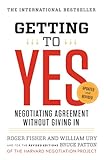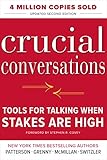Win/Win is a constantly seeking mutual benefit in all interactions. Win/Win means that agreements or solutions are mutually beneficial, mutually satisfying. With a Win/Win solution, all parties feel good about the decision and feel committed to the action plan. Win/Win sees life as a cooperative, not a competitive arena. Most people tend to think in terms of dichotomies: strong or weak, hardball or softball, win or lose. But that kind of thinking is fundamentally flawed. It’s based on power and position rather than on principle. Win/Win is based on the paradigm that there is plenty for everybody, that one person’s success is not achieved at the expense or exclusion of the success of others.
These are my insights based on the 7 habits Chapter 4.
- Everything else is Lose/Lose
Everything else is Lose/Lose
Ingredients for Win/Win
Emotional Bank Account
Empathic Listening and Understanding
Attending to little things
Keeping commitments
Clarify Expectations
Showing personal integrity
Apologize on withdrawal
P problems are PC opportunities
Character
- INTEGRITY. Habits 1, 2 and 3. Being Proactive, beginning with the end in mind, and putting first things first.
- MATURITY. Maturity is the balance between courage and consideration. Emotional maturity “the ability to express one’s own feelings and convictions balanced with consideration for the thoughts and feelings of others
Abundance mentality
The Abundance Mentality, the paradigm that there is plenty out there for everybody. A rising tide, lifts all boats.
Relationships
- Guidelines specify the parameters (principles, policies, etc.) within which results are to be accomplished.
- Resources identify the human, financial, technical, or organizational support available to help accomplish the results.
- Accountability sets up the standards of performance and the time of evaluation.
- Consequences specify—good and bad, natural and logical—what does and will happen as a result of the evaluation.
Structure and systems
Process
Books
- Getting to Yes
- Crucial Conversations

